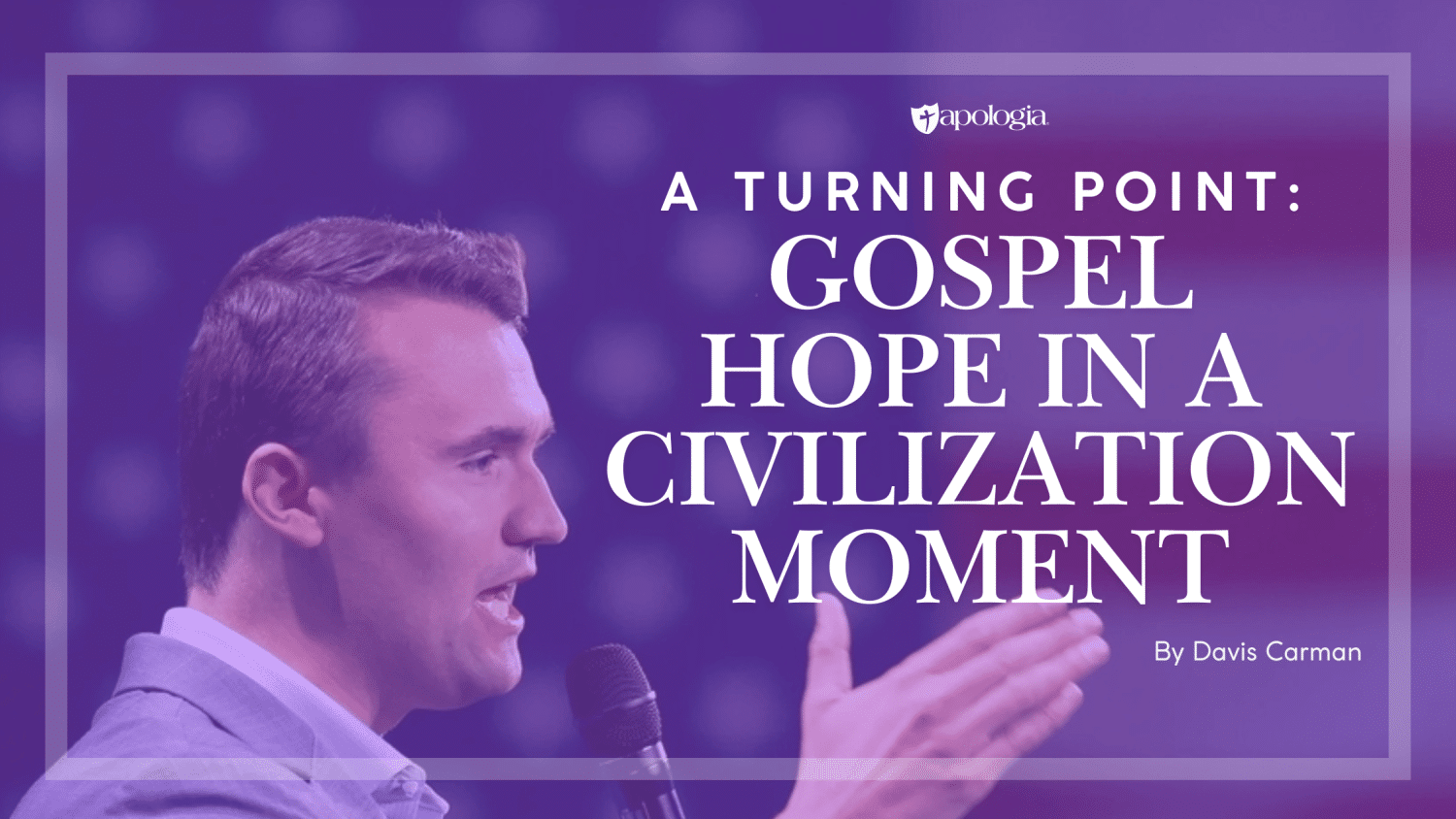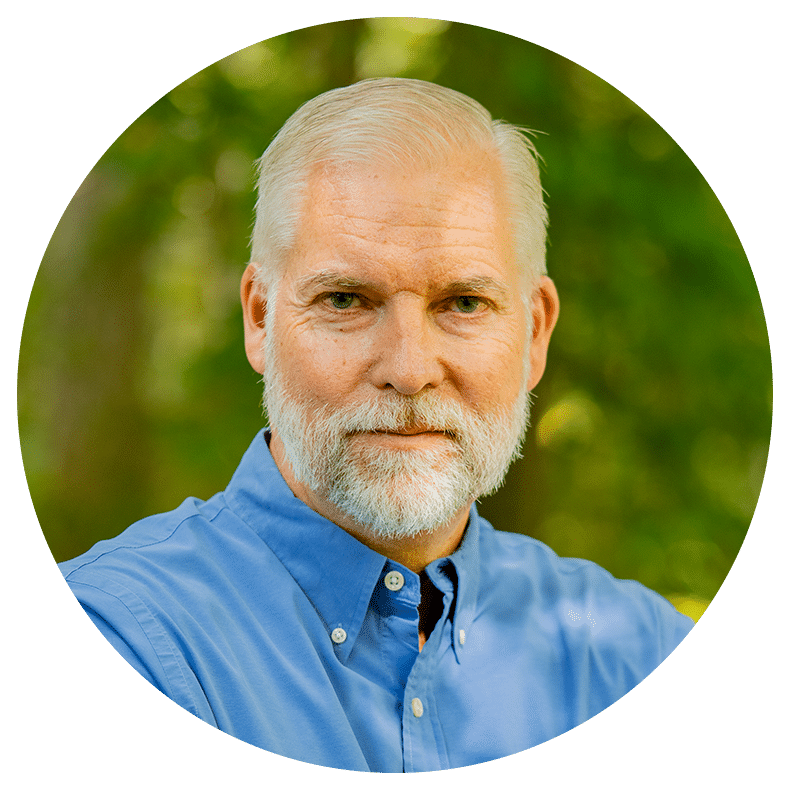
A Turning Point: Gospel Hope in a Civilizational Moment
I don’t normally watch any television on Sunday, not even during football season. But on September 21st, I watched the memorial service for Charlie Kirk, and I couldn’t walk away because the gospel was preached, and God was worshiped hour after hour—over five hours by my count. It reminded me of an old-time church revival meeting. Wow! It felt like I was in church practically the whole day, and it was worth every minute.
This wasn’t just a tribute to a fallen leader. It was an extended worship service and a public declaration that Jesus Christ is King. What could have been a purely political or cultural gathering instead became a proclamation of the gospel to millions.
A Civilizational Moment
Not long ago, I watched Truth Rising, a documentary produced by The Colson Center and Focus on the Family. In it, Os Guinness described what he calls a civilizational moment. He believes we are experiencing one of those right now.
Think back to 9/11 or the COVID pandemic. Those were moments when history seemed to stand still—when the world was shaken and people were asking deep questions. Times like these are when the iron is hot for gospel proclamation. The noise of daily distractions fades, and people are suddenly attentive to eternal truths.
Some respond by repenting, believing, and receiving the free gift of salvation through Christ. Others may finally walk away from destructive habits—addictions to alcohol, drugs, porn, or gambling. Fathers decide to start tucking their kids into bed with prayer and a kiss on the forehead. Mothers realize the futility of endless scrolling and comparison on social media and choose instead to pour into their families. Pastors stop tickling ears and begin to preach the whole counsel of God with courage and conviction.
This is the kind of moment we are living in now.
The Gospel Proclaimed
At Charlie Kirk’s memorial service, the gospel was proclaimed again and again by several speakers. Tens of thousands were there in person, and millions more tuned in online. Together, we heard believers lift up “the name above all names.”
I was struck by the humility of Vice President JD Vance. He admitted that he hadn’t always been comfortable speaking publicly about his faith, but has now spoken more about Christ in the last two weeks than at any other time in his public service. When he hosted Charlie’s podcast the week before, he even ended the show with a fifteen-minute summary of the Christian faith, including a paraphrase of the Nicene and Apostles’ Creeds.
Secretary of War Pete Hegseth also declared the gospel. Secretary of State Marco Rubio beautifully summarized the death, burial, and resurrection of Jesus Christ in under two minutes. And apologist Frank Turek reminded us with clarity:
“Charlie is not in heaven because he sacrificed his life for Jesus. He is in heaven because Jesus sacrificed His life for Charlie.”
Most powerful of all was Erika Kirk. Speaking of the young man who murdered her husband, she said:
“On the cross, our Savior said, ‘Father, forgive them, for they know not what they do.’ … That young man, I forgive him … because it was what Christ did and is what Charlie would do. The answer to hate is not hate. The answer we know from the gospel is love and always love.”
Her words were a testimony of supernatural grace. Forgiveness in the face of such tragedy can only come from Christ.
If the murderer hoped to silence Charlie’s influence, he failed.
As Joseph said to his brothers in Genesis 50:20, “As for you, you meant evil against me, but God meant it for good, to bring it about that many people should be kept alive, as they are today.”.
Our Calling in Cultural Moments
In every cultural moment, God calls His people to be agents of renewal. That means advancing what is good, offering what is most needed but missing, working to restore what is broken, and resisting what is evil.
Rachael and I had the privilege of going through the Colson Fellows program, where we were challenged to ask four key questions:
- What is good in our culture that we can promote, protect, and celebrate?
- What is missing in our culture that we can creatively contribute?
- What is broken in our culture that we can restore?
- What is evil in our culture that we can stop or resist?
Being an advocate for home education, my answers immediately went in that direction.
- What is good?
- The home education movement. Over the last forty to fifty years—and especially since 2020—homeschooling has become one of the brightest lights in American culture. Spiritually, socially, academically, and culturally, it is bearing incredible fruit.
- What is missing?
- Strong family life—marriage, child-rearing, family worship, and Deuteronomy 6 moments have all but disappeared. Homeschooling helps bring these back by re-centering the home as the hub of family, work, learning, and ministry.
- What is broken?
- The education system. Public schools are beyond repair, but the discipleship of children can be restored through homeschooling.
- What is evil?
- The liberal agenda that saturates government-run schools with sexual depravity, atheism, postmodernism, socialism, racism, and more. The most effective way to stop this is for families to opt out of the public institutions in large numbers, sending their children to private schools or homeschooling.
A Legacy Worth Pursuing
In the days following Charlie’s death, many of his statements have been repeated in tributes. One quote captures his message to young people this way:
“Get married. Have children. Build a legacy. Pass down your values. Pursue the eternal. Seek true joy.”
That’s good and wise counsel.
When I talk with my own adult children, I often share a similar vision of the good life. With a few tweaks, here’s how I would frame it:
Get married. Have as many children as God would send. Homeschool. Make the love and knowledge of God paramount in your marriage, your parenting, and the education of your children.
This is how families can build legacies that last for generations. This is how we pass down the faith “once for all delivered to the saints.”
The True Turning Point
If Charlie’s death becomes a turning point for our culture, then let’s be clear about what kind of turning point it must be. I’m not referring to a primarily political or even educational or cultural turning point—it must be a spiritual turning point anchored in the one true turning point of human history, the cross and resurrection of Jesus Christ.
We forgive because we have been forgiven.
We love because He first loved us.
We stand for truth because He is Truth.
That is our calling. That is our hope. And that is the only foundation that will stand when everything else around us is shaking.
So let us seize this civilizational moment. Let us proclaim the gospel without hesitation. Let us strengthen our families, disciple our children, and pursue what is good, true, and eternal. And let us do all of this for the glory of God.



